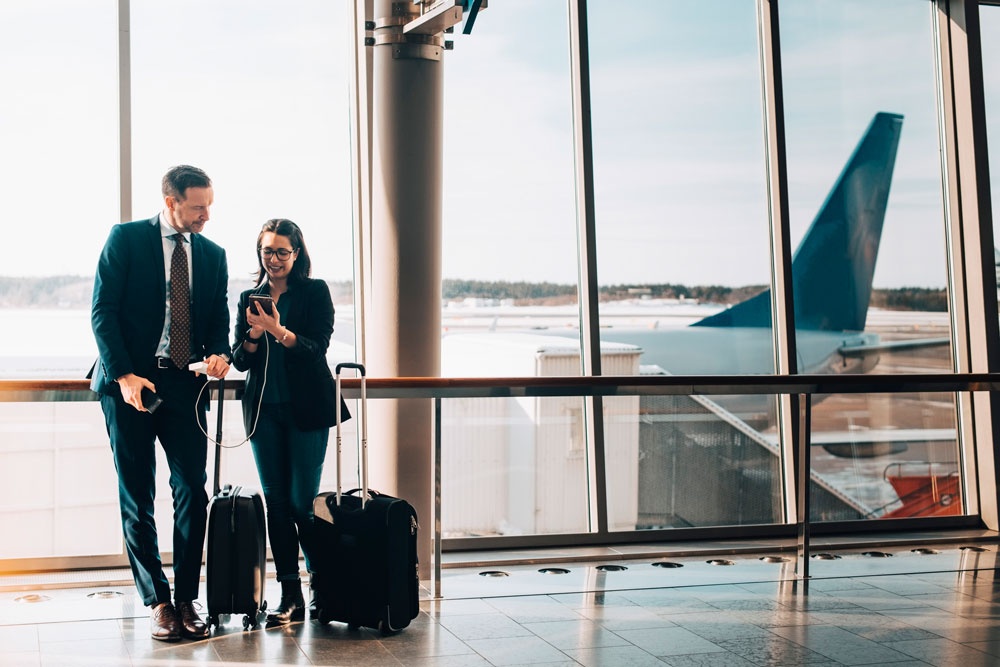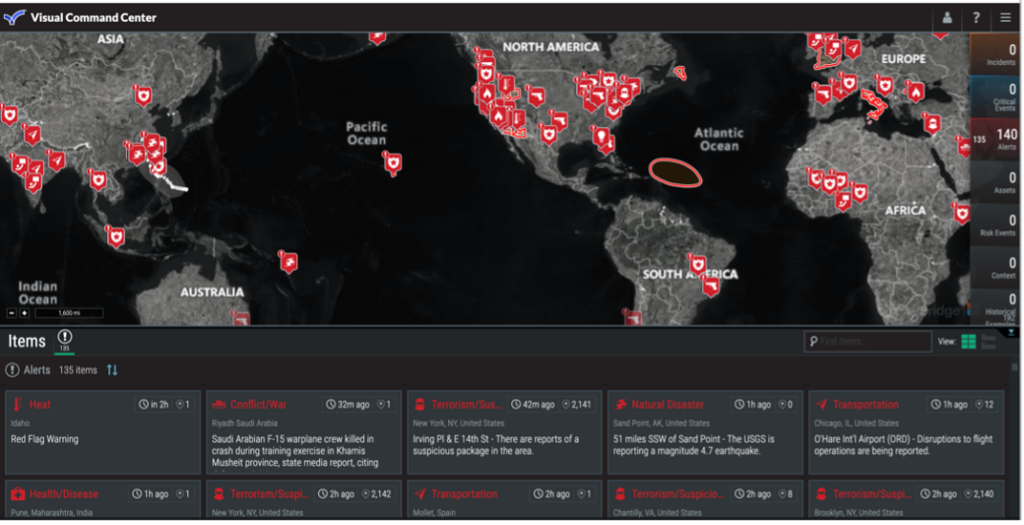A higher standard of ‘duty of care’ for business travel

A Q&A with Lee O’Sullivan, Everbridge Head of Global Security Operations
Countless factors could impact your employees’ well-being while on the road—from severe weather and natural disasters to geopolitical conflicts. When incidents occur, Everbridge has organizations covered. Our comprehensive traveler assistance service is designed to address any event that could impact the health, safety, or wellbeing of a corporate traveler. We have a wealth of experience in successfully extracting travelers from scenes of crisis, outbreak of war, or other life-threatening incidents.

What are the ways in which you meet specific requirements for protecting business travelers, including security training and preparation, kidnap and ransom insurance, and evacuation protocols?
When we receive any type of security request to support business travelers, whether they are executives, whether it’s the CEO, whatever level they’re at, the process begins with a risk assessment that looks at several different elements of what we would call their “risk profile.” Those elements can be the company itself, the individual, their itinerary, the reason they’re traveling. We pull all this information together and provide a recommendation on the appropriate level of security for that individual. If we’re looking at high net worth or senior executives, they have a higher risk profile, because they may be more likely to be targeted because of who they are, what their role is, be that on business, travel, or in their personal life. In most cases, we would recommend some form of security for a senior executive.
We also think about what needs to happen before the trip. First, is there some form of training that either that individual, or the security team, or the management team needs to receive? If we’ve identified there’s a high kidnap and ransom threat as part of our risk assessment, we may suggest that the individual travelling receives some form of Kidnap & Ransom (K & R) training on indicators that they’re being targeted and what to do if they are kidnapped. Additionally, we can offer training for the management team on what to do if there is a kidnap situation.

We put all of this under a broad description of what we call “secure journey management” and there are a number of different services that we provide as part of that. At its most basic level, it provides a security team to move people from points A to B. Additionally, we look at what contingency planning needs to be in place prior to the trip. If there is a security incident of some type, how do we plan to respond? One of our core services is global security assistance. We’ve got a proven pedigree of providing support to clients on a global scale. So, if there is an incident and we need to evacuate an individual, we’ve already got procedures and processes set up.
What are some of the most important considerations when dealing with expats and business travelers?
Today, people often require a little bit more assistance than they might have prior to 2020. At the same time, the expectations of what can be provided globally may not always be achievable because different countries have different services available to travelers. We feel that we can best manage people’s expectations by excellent and thorough preparation and personal contact with our subject matter experts when required.
Can you discuss the challenges associated with travel risk management for the executive traveler demographic?
I’d probably say one of the biggest challenges that we face with a lot of senior executives is they feel that they don’t want security. Therefore, we have to balance their wishes with the company wanting some form of security to be in place. We have several ways of approaching this. For one, not all security is provided in an overt manner. For example, if a client feels he doesn’t want security because he feels he doesn’t want an overt security team surrounding him providing that deterrent or protection, we can provide a more low-key, low profile security team that’s more in the background, but still there if something does go wrong.

If they’re completely hostile to a security team being there with them, we can have a security team that’s on standby, able to deploy if there is some sort of security incident. At the very least, what we can look to have some sort of tracking device with them; so, if something goes wrong, we know where they are, and we can deploy. Then, we have the final option of having no security, in which we then go back to training. If you’re not going to have a security team because you’re hostile to any form of security, we can at least give you some personal security training that enables you to identify certain risks and how to respond.
Could you share some experiences and lessons learned?
I would say the biggest lesson of the last few years has been that we need to be agile to respond to so-called unexpected events, be it a viral pandemic, global lockdowns, energy shortages, wars, or natural disasters. We can never rest or think we have achieved the perfect model of providing [security] assistance. Instead, we need to constantly examine how to provide the best possible service for our clients. The combination of high-end technology, our travel apps, and our [security] colleagues, make it possible for us to respond to each situation in a bespoke fashion.
Additionally, we’ve learned that the most important part of providing any level of security to any individual traveling is intelligence and planning. It’s getting as much information as you can, not only about the location that they’re going to, but building that risk profile by identifying potential vulnerabilities and potential risks.
Maybe something as simple as they’ve never visited a certain region and they’re not aware of the cultural norms. Just by not being aware, they could potentially put themselves into a hazardous situation where they say or do something that’s not accepted in that country. When you are providing protection, it’s unwise to overly focus just on that physical security team. Most of security operations are based on a lot of contingency planning and a lot of intelligence research.
Speak to an Everbridge Resilience Expert: To speak with Lee or a member of our Everbridge team related to travel risk management, please contact comms@everbridge.com.


